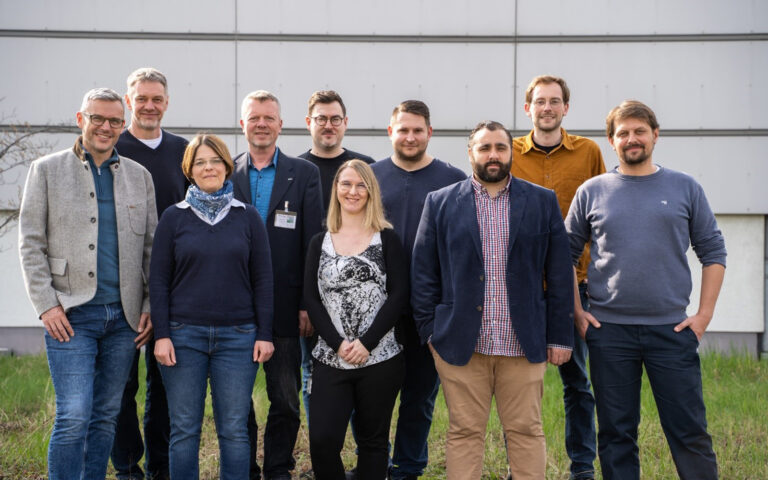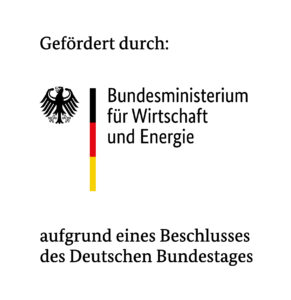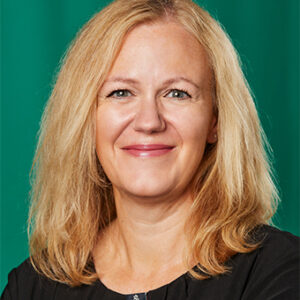Contributing to the energy transition by making cooling supply systems more flexible
Research Focus: Climate Action Innovation
By making cooling supply systems more flexible, CO2 emissions can be reduced by 22 to 39 percent and electricity procurement costs by 35 to 54 percent. Fraunhofer UMSICHT came to this conclusion in the “FlexKaelte” project. At the same time, the researchers found that there are still a number of obstacles and hurdles on the way to flexibilization – from concerns about possible losses in cooling quality and a lack of information regarding the achievable economic potential to the question of how cooperation between the various players can be structured. How these obstacles can be overcome is the focus of the follow-up project “FlexBlue”, for which the institute has joined forces with a number of partners.
The Institute for New Energy Systems at Ingolstadt University of Applied Sciences, the Institute for Automation and Applied Computer Science at the Karlsruhe Institute of Technology (KIT) and the FZI Research Center for Information Technology are involved as scientific consortium partners. They have also gained relevant experience in previous projects (“BlueMilk” and “FlexKälte”) on making the cooling sector more flexible and have come to similar conclusions. In addition, RÜTGERS GmbH & Co. KG as a system manufacturer, kraftBoxx GmbH as a specialist in PCM storage and SK Verbundenergie AG as the operator of a virtual storage power plant are working together as consortium partners to contribute their expertise. In addition, seven other organizations from the field are supporting the project as associated partners. “Together, we want to bring together all relevant players in the flexibility value chain in the refrigeration sector in order to develop high-performance and application-oriented solutions,” says Dr. Annedore Mittreiter from Fraunhofer UMSICHT. “These solutions should be both technically and economically convincing and serve as a model for the widespread implementation of flexibilized cooling supply systems in the future.”
Demonstrators to prove the functionality and usefulness of flexibilization
Specifically, two demonstrators are being set up in real application areas. One is being built at KIT, the other at RÜTGERS GmbH & Co. KG. “For flexible operation, we deliberately rely on additional buffer storage, as the use of capacities that are already available in the environment to be cooled cannot usually be designed efficiently,” explains Dr. Heiko Maaß from the Institute of Automation and Applied Computer Science at KIT. “In one demonstrator, we combine photovoltaics, battery storage, a compression chiller and an actively controllable PCM cold storage system, and in the other demonstrator, an active PCM multi-layer heat storage system with a booster heat pump in combination with a combined heat and power plant, an adsorption chiller and a cold storage system.”
Making the interfaces of refrigeration supply systems transparent
Another focus of “FlexBlue” is on the operational interfaces between the various players in the flexibilization value chain. These are first identified and characterized together with the various design options and examined with regard to their impact on the realizable flexibility potential. Ultimately, the aim is to be able to make target group-specific recommendations for the planning and operation of flexible cooling supply systems that contribute to decarbonization at the end of the project.
The transfer of knowledge and the activation and networking of stakeholders also play an important role here: they should be motivated and enabled to convert existing cooling supply systems or optimize the planning of new systems accordingly. This is why the project is developing scalable methods and schemes that can be implemented cost-effectively and easily. “Ultimately, we want to ensure that our results are transferable and thus both initiate the implementation of flexible cooling supply systems and make a contribution to the energy transition,” says Annedore Mittreiter, summarizing the objectives of “FlexBlue”.

From left to right:
Tino Leyrer, Klaus Rauch, Annedore Mittreiter, Heiko Maaß, Martin Stöckl, Dana Laband, Keven König, Francesco Ianni, Sebastian Berg, David Wölfle
FZI develops generic algorithms for optimized system control
In the FlexBlue project, the FZI is developing generic algorithms based on machine learning concepts for optimized system control. Once the project is completed, the aim is to be able to retrofit the developed algorithms in combination with the storage system in the form of a plug-and-play solution in a large number of buildings. This will reduce the operating costs of buildings and, at the same time, contribute to the success of the energy transition in Germany.
More information about the project FlexBlue
The project “FlexBlue” is funded by the Federal Ministry for Economic Affairs and Climate Protection.
About the FZI
The FZI Research Center for Information Technology, with headquarters in Karlsruhe and a branch office in Berlin, is a non-profit institution for information technology application research and technology transfer. It delivers the latest scientific findings in information technology to companies and public institutions and qualifies individuals for academic and business careers or the leap into self-employment. Supervised by professors from various faculties, the research groups at the FZI develop interdisciplinary concepts, software, hardware and system solutions for their clients and implement the solutions found as prototypes. The FZI House of Living Labs provides a unique research environment for application research. The FZI is an innovation partner of the Karlsruhe Institute of Technology (KIT) and strategic partner of the German Informatics Society (GI).
This press release was adopted from the Fraunhofer Institute for Environmental, Safety and Energy Technology UMSICHT. A section on the FZI part of the project has been added.


Press contact
Valérie Hasler
Division Manager Communications
- +49 721 9654-345
- presse@fzi.de
- Headquarters Karlsruhe
Press contact
Stefanie Bergel
Fraunhofer Institute for Environmental, Safety and Energy Technology UMSICHT
- +49 208 85 98-1599
- stefanie.bergel@umsicht.fraunhofer.de
- Osterfelder Straße 3, 46047 Oberhausen
Download Media:
Please click on the media to download.
More Downloads & Links:
- Fraunhofer Press information
- Fraunhofer Press information on the project completition of FlexKälte
- Fraunhofer Project sheet of FlexKälte
